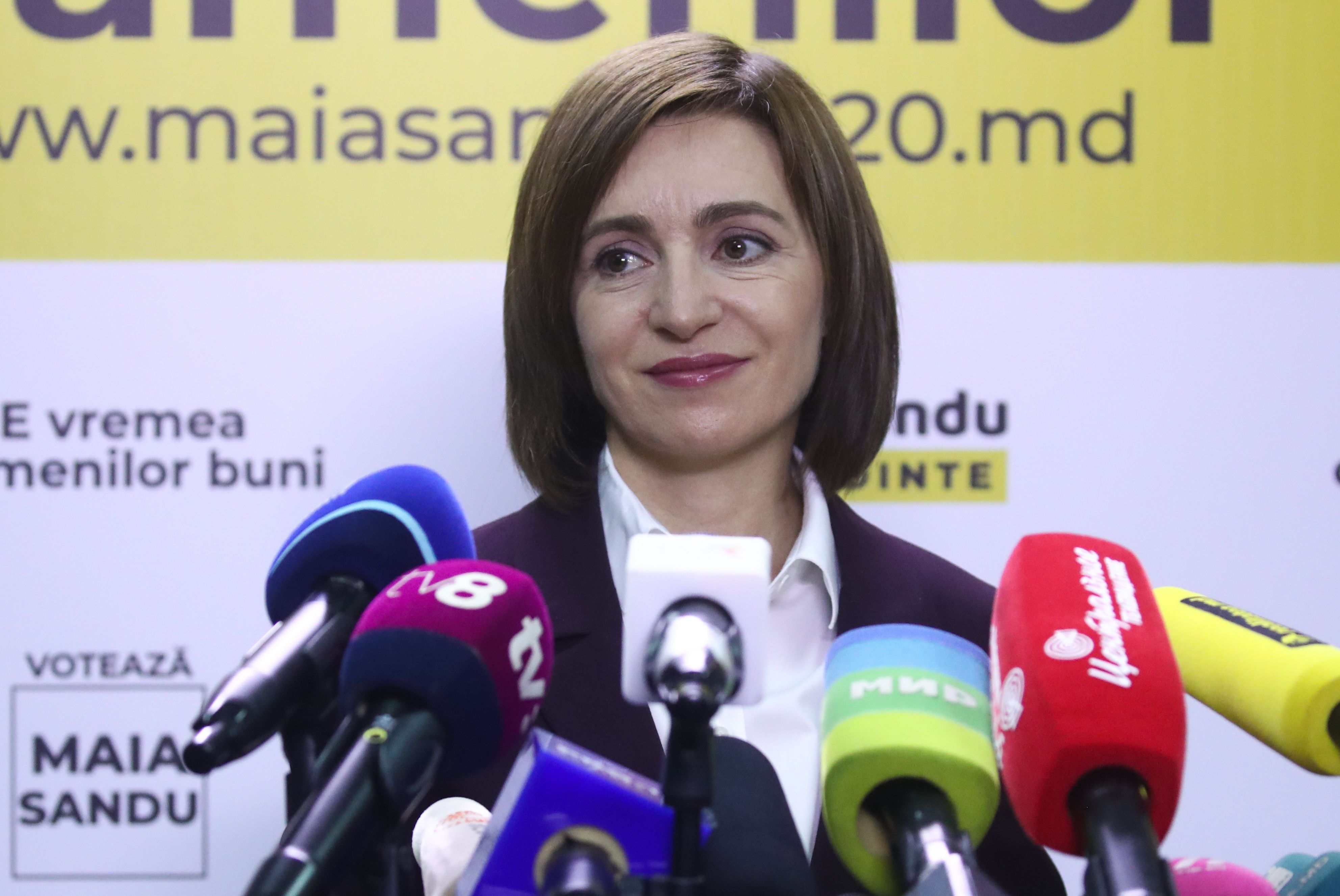Pro-European Opposition Candidate Sandu Wins Moldovan Presidential Elections

Who is Sandu, the newly elected president?
In Moldova, Sandu represents the fight against corruption and the appropriation of the state by the oligarch Vlad Plahotniuc, backed by incumbent President Dodon and PSRM. In June 2019, the oligarch fled the country after Sandu was nominated as prime minister of the “grand coalition” government created with the backing of the EU, the U.S., and Russia by the pro-Western ACUM bloc, Sandu’s Action and Solidarity Party (PAS), and the Dignity and Truth Platform Party (DA) with the Socialists. The cabinet collapsed in November due to a conflict between ACUM and PSRM over the election of an independent general prosecutor. In turn, Sandu ran against Dodon in the 2016 presidential election, but lost—narrowly—winning 48% of the votes. In 2012–2015, she was the minister of education in the governments of the pro-European coalition.
What was the election campaign focused on?
The candidates’ declarations focused on the fight against corruption and de-oligarchisation of the state. Sandu’s credibility in these matters surpasses Dodon’s, who supported Plahotniuc and, after his exile, sought to replace the oligarch in terms of influence. Sandu presented herself as a technocrat capable of reforming Moldova structurally and bringing it closer to EU membership. Dodon, on the other hand, announced a social policy plan and indicated that the welfare system would suffer if Sandu won. Although Dodon considered cooperation with the EU beneficial, he promised to develop Moldova with loans from Russia and to secure opening of the latter’s markets to Moldovan goods and employees. However, the lack of significant success in these areas in his time in office resulted in low trust in his proposals among the pro-Russian electorate.
Why did Sandu win?
Sandu’s victory in the first round—contrary to polls—led to an extraordinary mobilisation of her electorate in the second round. The turnout was nearly 10 percentage points higher. The half million Moldovan diaspora in Western countries actively supported Sandu while Dodon was not able to break the passivity of the equally large Moldovan community in Russia. Voting abroad amounted to 262,000 people, or 16% of all votes cast—93% of them for Sandu. Renato Usatîi, who came third in the first round with 16% of the votes, called on his supporters to vote against Dodon because of a political and personal conflict. As a result, a significant part of his pro-Russia electorate voted for Sandu instead of Dodon. The PSRM’s calculations involving strong support from pro-Russia inhabitants of Transnistria proved wrong. Despite record participation—31,000, nearly twice as many as in 2016—they constituted less than 2% of the total number of voters. What’s more, 14% of them supported Sandu.
What are the consequences for the internal situation in Moldova?
Using the authority of her office, Sandu can more effectively build her political base and influence the electorate, thanks also to more widespread presence in media. However, the president’s constitutional powers are small: for example, parliament can reject a presidential veto by a normal majority of votes. The absence of a friendly parliamentary majority will hamper Sandu’s efforts at reform. In the 101‑seat parliament, PSRM remains the largest faction with 37 deputies. PAS has only 14, and its coalition capacity is small, because, apart from the DA with 11 MPs, other parties are beneficiaries of the current oligarchic system. It is likely that they will opportunistically support the minority government of the PSRM Prime Minister Ion Chicu to avoid early parliamentary elections, which would probably strengthen PAS and enable the formation of a government.
What are the consequences for Moldova's international orientation?
The Sandu presidency will give Moldova a new opening in relations with the EU and its neighbours. Due to Dodon’s denial of the Moldovan-Romanian cultural community and his favourable attitude towards the Russian invasion of Crimea, Romania and Ukraine have refused contact with him. He was also subject to diplomatic ostracism by EU states and institutions due to his pro-Russia stances and illusory implementation of EU standards by the PSRM government. This election is a political breakthrough in Moldova and may foster greater interest in the EU returning to actively supporting pro-European reforms in that country. It is also a favourable moment for Poland to accelerate activities and use cooperation mechanisms under the Eastern Partnership. As chair of the Visegrad Group, Poland can effectively strive for a strong voice supporting pro-European changes in Moldova.


